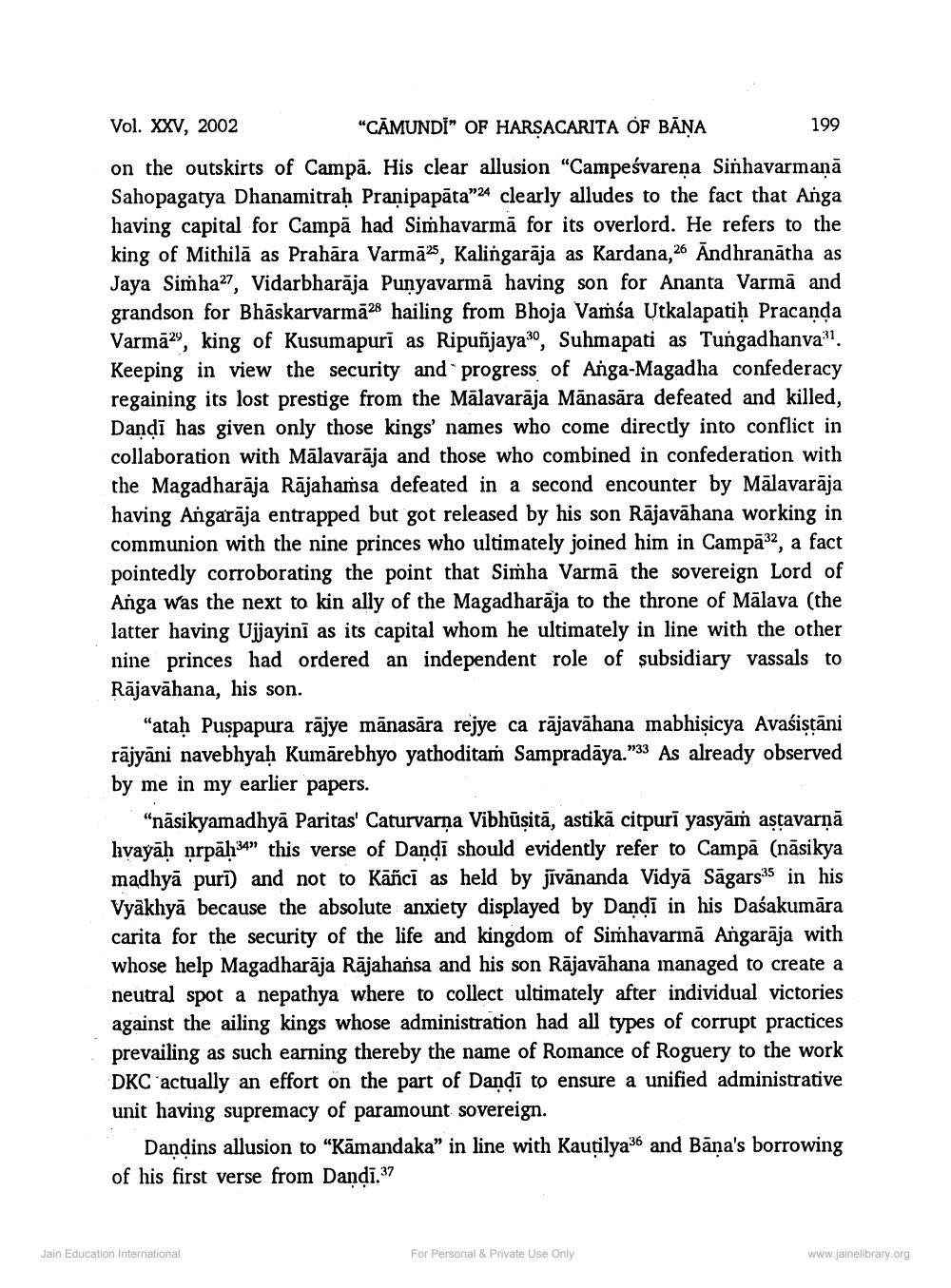________________
Vol. XXV, 2002 "CĀMUNDI" OF HARSACARITA OF BĀŅA
199 on the outskirts of Campā. His clear allusion “Campeśvareņa Sinhavarmaņā Sahopagatya Dhanamitraḥ Pranipapāta”24 clearly alludes to the fact that Anga having capital for Campā had Simhavarmā for its overlord. He refers to the king of Mithilā as Prahāra Varmā25, Kalingarāja as Kardana 26 Āndhranātha as Jaya Simha27, Vidarbharāja Punyavarmā having son for Ananta Varma and grandson for Bhāskarvarmā28 hailing from Bhoja Vamśa Utkalapatiḥ Pracanda Varmā29, king of Kusumapuri as Ripuñjaya30Suhmapati as Tungadhanva". Keeping in view the security and progress of Anga-Magadha confederacy regaining its lost prestige from the Mālavarāja Mānasāra defeated and killed, Dandi has given only those kings' names who come directly into conflict in collaboration with Mālavarāja and those who combined in confederation with the Magadharāja Rājahamsa defeated in a second encounter by Mālavarāja having Angarāja entrapped but got released by his son Rājavāhana working in communion with the nine princes who ultimately joined him in Campā, a fact pointedly corroborating the point that Simha Varmā the sovereign Lord of Anga was the next to kin ally of the Magadharāja to the throne of Mālava (the latter having Ujjayinī as its capital whom he ultimately in line with the other nine princes had ordered an independent role of subsidiary vassals to Rājavāhana, his son.
"atah Puspapura rājye mānasāra rejye ca rājavāhana mabhișicya Avaśistāni rājyāni navebhyah Kumārebhyo yathoditam Sampradāya."33 As already observed by me in my earlier papers.
“nāsikyamadhyā Paritas' Caturvarņa Vibhūṣitā, astikā citpuri yasyāṁ astavarņā hvayāḥ șrpāḥ34this verse of Dandī should evidently refer to Campā (nāsikya madhyā purī) and not to kañci as held by jīvānanda Vidyā Sāgars35 in his Vyākhyā because the absolute anxiety displayed by Dandī in his Daśakumāra carita for the security of the life and kingdom of Simhavarmā Angarāja with whose help Magadharāja Rājahansa and his son Rājavāhana managed to create a neutral spot a nepathya where to collect ultimately after individual victories against the ailing kings whose administration had all types of corrupt practices prevailing as such earning thereby the name of Romance of Roguery to the work DKC actually an effort on the part of Dandī to ensure a unified administrative unit having supremacy of paramount sovereign.
Dandins allusion to "Kāmandaka" in line with Kautilya36 and Bāna's borrowing of his first verse from Dandi.37
Jain Education International
For Personal & Private Use Only
www.jainelibrary.org




